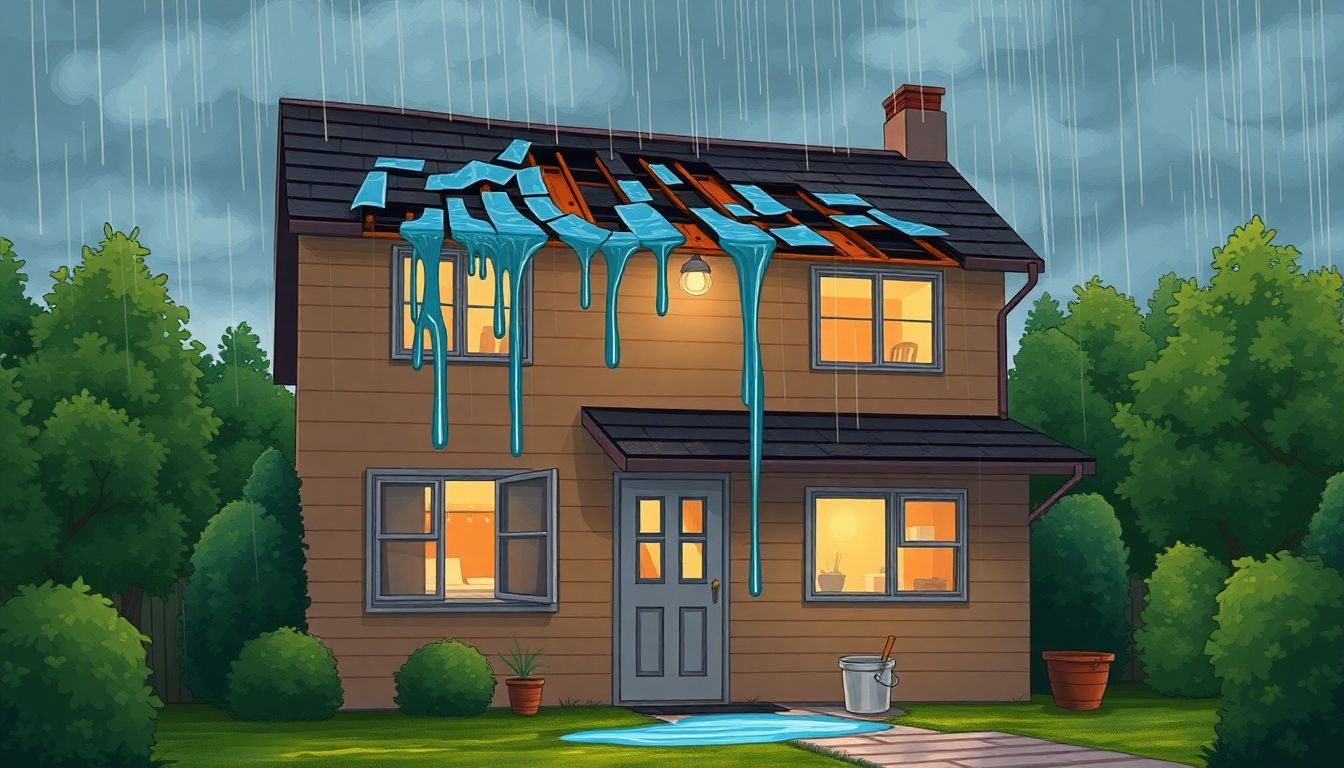Introduction
Roof leaks and water damage lead to costly repairs that many homeowners fear. When water starts coming into your home, it can cause damage to ceilings, walls, belongings, and even the structure itself. Knowing whether your insurance will help cover these issues is crucial to avoiding big bills. Many homeowners ask, "Does my policy cover roof leaks?" or "Will water damage from a storm be paid for?" Getting clear answers helps protect your wallet and gives peace of mind during bad weather.
Understanding Homeowners Insurance and Its Basic Coverage
What is Homeowners Insurance?
Homeowners insurance is a policy that protects your house and possessions. It covers damages caused by unexpected events like storms, fire, or vandalism. Think of it as a safety net for your home. It usually includes four main parts:
- Dwelling: The actual structure of your house
- Personal Property: Your belongings inside
- Liability: Legal protections if someone gets hurt
- Additional Living Expenses: Covers costs if you need to stay somewhere else after damage
How Roof Damage Is Generally Covered
Insurance usually pays for damage caused by unexpected events. If a hailstorm dents your roof, or wind tears shingles off during a storm, your policy might cover those repairs. However, damage from normal wear and tear or neglect isn’t typically covered. The key difference lies in whether the damage was accidental or due to the elements.
Does Homeowners Insurance Cover Roof Leaks?
Coverage for Roof Leaks Caused by Perils
Leaks caused by sudden perils are often covered. These include:
- Wind or hail storm damage that tears shingles
- Fire or vandalism that damages the roof
- Falling objects like tree limbs
If a storm damages your roof and water seeps through, your insurance can help pay for repairs and water cleanup. Claims are more likely to succeed if the damage was sudden and caused by a covered peril.
Exclusions and Limitations
Most policies won’t pay for leaks caused by everyday issues. For example:
- Normal wear and tear
- Poor maintenance or neglect
- Pre-existing damage before the policy began
Regular roof inspections and maintenance are key. Ignoring small leaks or damage can lead to claim denials. Insurance companies expect you to care for your home, not let issues grow.
Real-World Examples
One homeowner had her roof damaged by a strong wind, which caused shingles to fall off and water to leak into the attic. Her insurer paid for repairs because of the storm. In contrast, another owner’s claim was denied after a leak developed over years due to age and ignored repairs, not an accident or storm.
Water Damage and Homeowners Insurance
Coverage for Water Damage from External Sources
Insurance can cover sudden water damage from external sources. For example:
- Heavy storms or hail that crack or damage the roof
- Falling trees or branches hitting your home
- Flooding from a storm (if you have flood insurance)
But it's vital to understand what is different between water damage and flood damage.
Water Damage Resulting from Roof Leaks
If a roof leak happens suddenly, coverage depends on the cause. For instance, if high winds rip shingles off, leading to water seeping inside, it’s likely covered. But if the leak is slow and caused by neglect or aging, insurers might deny the claim. Your policy's specifics play a big role.
What Is Not Covered?
Insurance generally won’t cover damage caused by:
- Slow leaks due to poor maintenance
- Ongoing issues with old roofs
- Water damage from unresolved problems before the policy started
Always check if your claim can be linked to an unforeseen event rather than neglect.
Additional Coverage Options and Riders
Optional Endorsements for Roof and Water Damage
You can add extra coverage to protect your property better:
- Roof replacement endorsements: Helps if your roof is old or vulnerable
- Water backup coverage: Protects against water coming from drains or sewers
- Flood insurance: A separate policy covering major flooding events
When to Consider Additional Coverage
If you live in a storm-prone area, or your home has an aging roof, extra protection makes sense. These options can be worth the cost, especially if your area faces frequent heavy storms or floods. Review your policy yearly and talk with your agent.
How to Maximize Coverage and Prevent Denials
Maintaining Your Roof and Property
- Conduct regular inspections, ideally twice a year
- Keep gutters cleaned and repairs up to date
- Fix small leaks promptly to prevent bigger issues
Document all maintenance and repairs with photos and receipts. This evidence can help if you need to file a claim.
Filing Effective Insurance Claims
- Act quickly after damage happens
- Take photos of the damage from different angles
- Contact your insurer and report the issue clearly
- Keep records of all communication and repair estimates
Expert Recommendations
Insurance agents suggest homeowners keep detailed records of upkeep and get annual inspections. Staying proactive lowers the chance of claim denials and speeds up approval processes.
Conclusion
Homeowners insurance can cover roof leaks and water damage, but the details matter. Sudden damages from storms or accidents are generally protected. Careless neglect or gradual wear usually isn’t. Regular roof maintenance and understanding your policy are your best defenses. Review your coverage annually, consider adding extra protections, and keep good records. By staying informed and prepared, you can better handle unexpected water issues—saving you money and stress in the long run. Remember, being proactive is the key to protecting your home from the unexpected.
